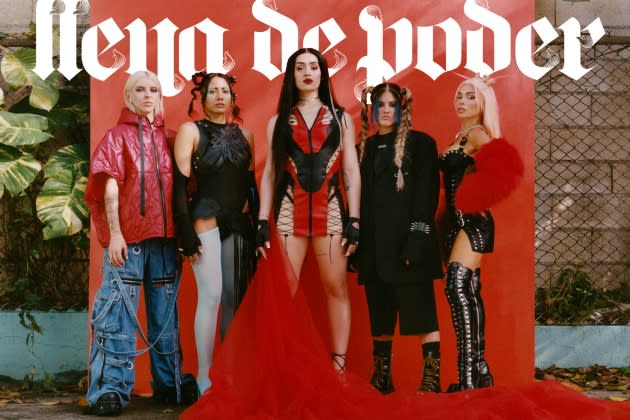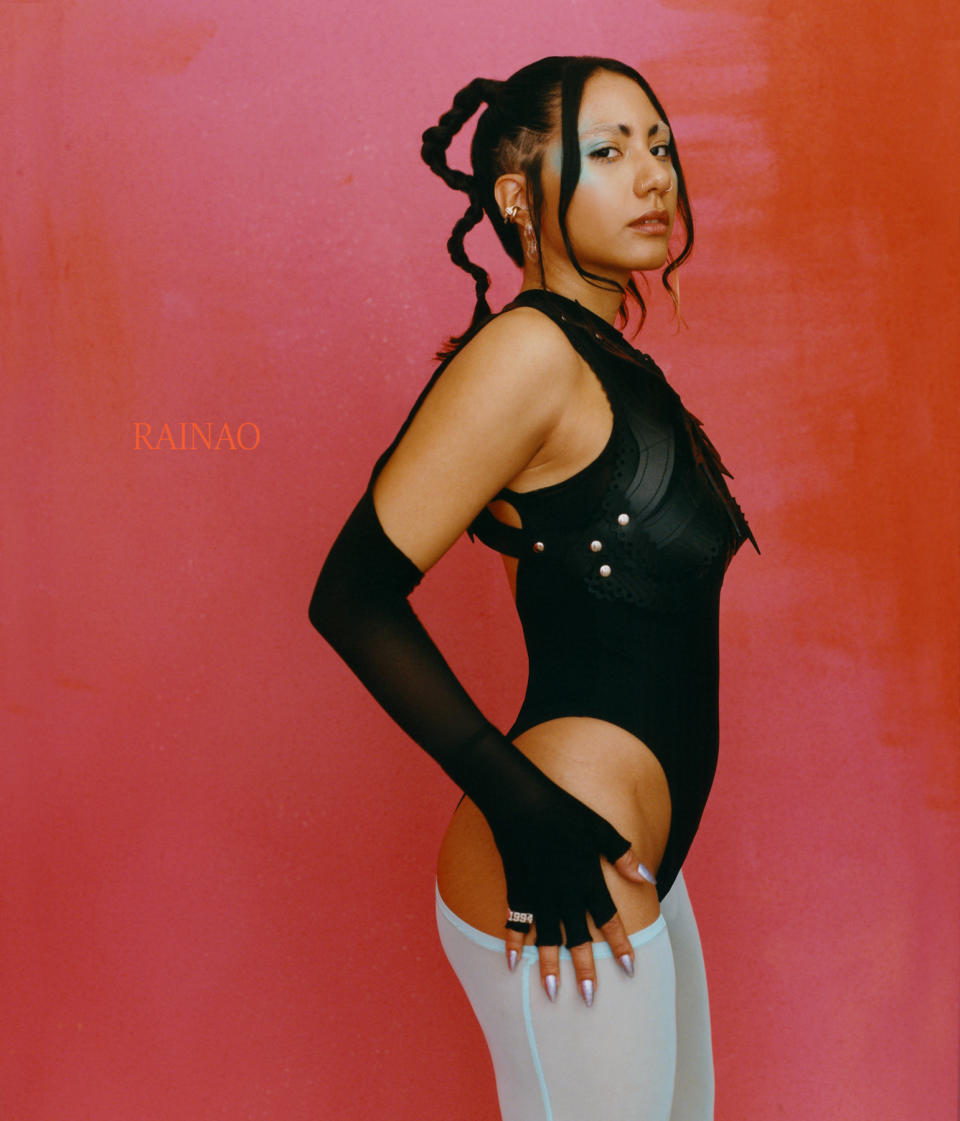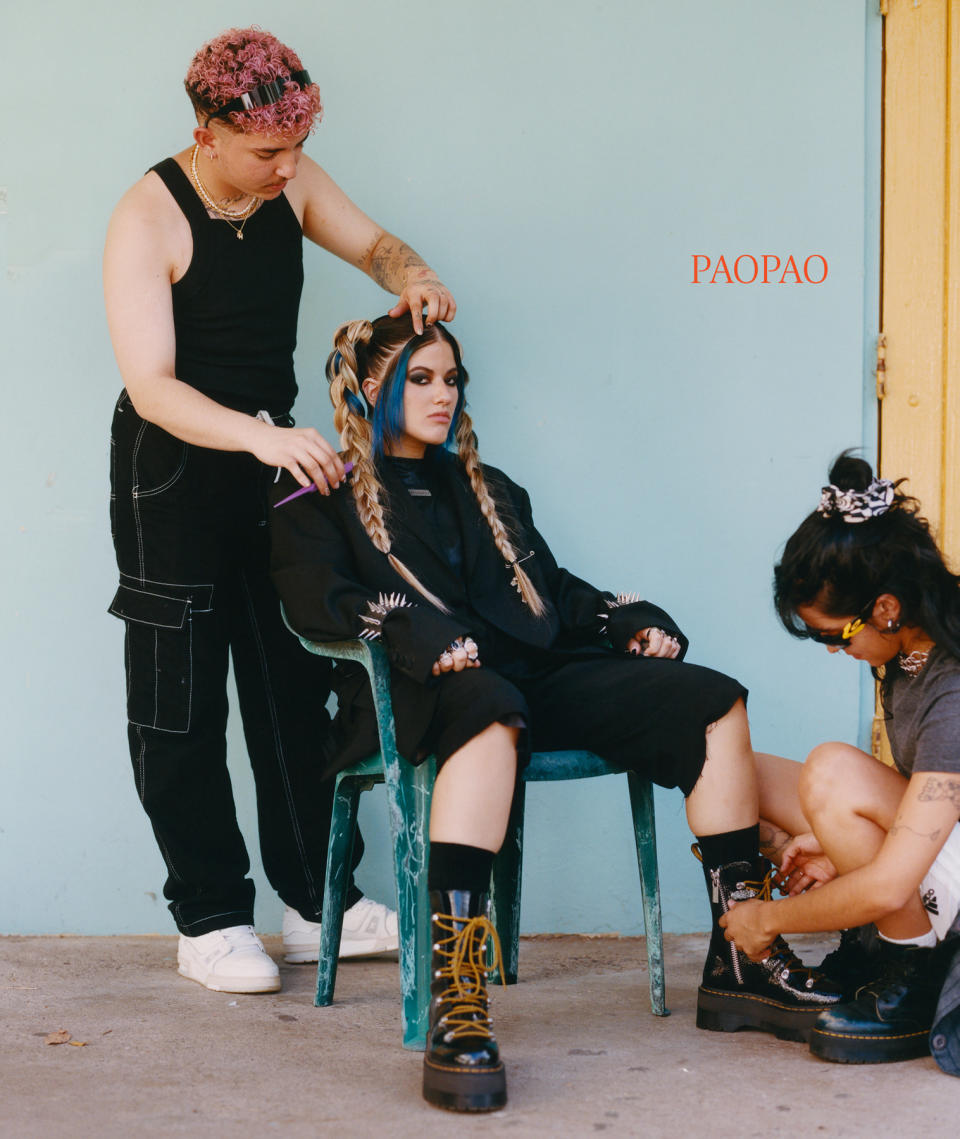Women In Puerto Rico Are Ending Urbano’s Boys’ Club For Good
- Oops!Something went wrong.Please try again later.
- Oops!Something went wrong.Please try again later.
- Oops!Something went wrong.Please try again later.

Last July, when Bad Bunny played three sold-out shows in Puerto Rico, the superstar — who was the most streamed artist in 2022 — took a moment to pass the mic. Sure, he’s done this before: His performances have become global spectacles that have included appearances from artists like J Balvin, Romeo Santos, and Cardi B. But these weren’t normal Bad Bunny concerts. He was returning to his home island to kick off his first stadium tour after dropping the record-shattering, history-making album Un Verano Sin Ti. Thousands of people waited to see what Bad Bunny would do — and who he might bring out.
Related
Bad Bunny Reaches Preliminary Settlement Over Reggaeton Hit ‘Safaera’
Sech Is Renewed, Reenergized, and Ready to Start Trouble
How Mora Brought Ibiza's Endless Nights to the World of Reggaeton
On the first night, the audience exploded into cheers as Bad Bunny revealed an unexpected guest: the barrier-breaking rapper Villano Antillano. She stepped onstage wearing a satin jacket with sky-high platforms that made her look like a super-hero, then proceeded to fire off bar after bar from her viral freestyle session with the Argentine producer Bizarrap, which currently has 179 million views on YouTube. The next night, Bad Bunny made way for Young Miko, the 24-year-old artist from Añasco, whose sleek, swaggy delivery sent her bouncy trap single “Riri” flying up the charts. By the end of her cameo, the entire crowd was screaming for an encore. The saxophonist-turned-vocalist RaiNao took the spotlight on the third night. Dressed in a see-through T-shirt made by Puerto Rican designer Namibia Viera, she was fearless as she belted out her ballad “Luv.”
More from Rolling Stone
Bad Bunny Reaches Preliminary Settlement Over Reggaeton Hit 'Safaera'
How Mora Brought Ibiza's Endless Nights to the World of Reggaeton
The gesture was monumental. Bad Bunny could have brought out any artist he wanted. Instead, he co-signed a women-led revolution that’s been brewing in Puerto Rico over the past several years.
Since 2018, women and LGBTQ folx in Puerto Rico have been powering a scene that’s been virtually unheard of in the male-dominated world of reggaeton and urbano. Antillano, Young Miko, and RaiNao are just a few of the names who have been attracting listeners, each bringing her own style and perspective to the genre. Antillano, who got her start releasing underground mixtapes in San Juan, was one of Latin music’s biggest breakthrough artists of 2022, thanks to her nimble rap skills and honest songwriting. Young Miko, an openly lesbian lyricist, used money she made as a former tattoo artist to pay for studio time and has put her experiences into trap songs that uplift the LGBTQ community. RaiNao, a graduate of the Escuela Libre de Música, combines her background as a musician and former vocalist for artists like Rafa Pabón to create her own sound.
The list doesn’t end there. Paopao’s moody soundscapes and edgy goth-kid aesthetics have turned heads, with Tidal singling her out as a Rising Artist to Watch in 2023. Singer Chesca has been racking up millions of views on YouTube with ebullient empowerment anthems like “TuTuRu.” Meanwhile, the folkloric reggaeton of Ana Macho and the psychedelic sounds of Cita prove how multifaceted this new generation is.

“This is an entirely new dynamic, where so many feminine voices are rising,” Antillano tells Rolling Stone. “It’s a beautifully historic moment.”
None of these artists are strangers to urbano. They were raised on reggaeton, the archipelago’s street soundtrack that started with late-Nineties recordings of Vico C, the Noise, and DJ Playero before reaching its current commercial and global apex. RaiNao remembers listening to artists like Tego Calderón and Héctor el Father on school field trips in her neighborhood of Santurce. “Our generation saw it go from underground to the mainstream,” she says.
Yet few women were allowed to join the ranks of reggaeton’s heavyweights. There was, of course, the boundary-pushing pioneer Ivy Queen, known for early reggaeton feminist anthems like “Yo Quiero Bailar,” and La Sista, whose bomba-infused beats and gritty lyricism defined her 2006 album, Majestad Negroide. But the landscape was primarily a boys’ club where women were often relegated to the background, away from the spotlight. “For a long time, the market — directed mainly by men — only had space for one,” Antillano says. “Being a woman is something so flat to them that just one is enough.”
As reggaeton expanded internationally in recent years, female artists from other countries, like Karol G from Colombia and Natti Natasha from the Dominican Republic, created a presence for women on the charts with pop-infused hits. Still, in Puerto Rico, the cradle of reggaeton, women remained on the periphery in a genre that talked about them but rarely let them speak for themselves — until now. They’re demanding attention and getting recognized by the world, impressing even Bad Bunny, and breaking the doors to the industry wide open.


THE CHANGES DIDN’T happen overnight. According to Patricia Velázquez, co-founder of Hasta ’Bajo Project, a multiplatform organization dedicated to archiving and dissecting reggaeton’s history, the social and political turmoil in Puerto Rico has empowered a young generation to demand more inclusion — and the urbano scene has finally begun to shake off outdated attitudes rooted in colonialism and patriarchy.
Since 2016, Puerto Ricans have lived through a chain of political upheavals and natural disasters: the appointment of the fiscal control board enacted by the U.S. government’s PROMESA bill, which has cut budgets, pensions, and other resources; governmental neglect from local and federal authorities in the aftermath of Hurricane María; 2020 earthquakes that rocked southwestern Puerto Rico; and the coronavirus pandemic that left thousands dead. All of these events have heightened silent crises of domestic violence and mental health. Following Hurricane María, a local report found that suicide rates spiked by 50 percent, while femicides as much as doubled, causing the government to declare a state of emergency in 2021, which feminist organizations had been calling for since 2018.
“This [movement] is the work of many sectors, from feminist and LGBTQ activists to anti-racist and anti-colonial groups,” Velázquez says. “Their work has allowed for the genre to change. Because audiences are more open and inclusive, their world has changed around them.”
Living in an archipelago plagued by colonial policies, a decades-long economic crisis, and alarming rates of violence against women has pushed this generation back to reggaeton’s radical political roots. “Reggaeton has always been transgressive, speaking against the government and narrating real experiences,” Velázquez says.


One example of that sharp transgressiveness is “Mujer,” a song from Antillano’s debut album, La Sustancia X, that features the Puerto Rican artist iLe. They end the track by naming victims of gender violence in a powerful acknowledgment of a femicide and transfemicide crisis that, according to the Observatory of Gender Equity in Puerto Rico, killed more than 60 women in 2022. Antillano also mentions Puerto Rico’s 2019 protests, a catalyst for her own political awakening that erupted after a leaked Telegram chat revealed then-Gov. Ricardo Rosselló and close officials had been mocking members of the local feminist organization Colectiva Feminista en Construcción. “Since it’s something so important and sacred for me, I wanted the song to rise to the moment,” Antillano says. “We know what it’s like to be a woman in this country and the violence that we’re all subject to.” In the chorus, she repeats, “Soy una mujer, llena de poder,” which means, “I’m a woman, full of power.”
These paradigm shifts have disrupted the traditional notions of storytelling in the genre. Sexualized lyrics and romantic pop fusions are common in reggaeton and Latin trap, but these rising artists have new narratives and experiences to share. On songs like “Riri” and “Bi,” Young Miko sings directly to women, speaking authentically to her identity as a queer woman. Her EP Trap Kitty features audio recorded inside a strip club in Puerto Rico, giving listeners a view into archipelago nightlife from another perspective. “It’s just this empowerment toward my whole community, and that’s something really beautiful, that they feel they have a space to be themselves and feel badass,” she says. Chesca, too, has been encouraging women to celebrate themselves through her songs. “I want women to feel free, confident, and secure in themselves,” she says.
This generation isn’t just offering powerful new messages; they’re upending the very sound of urbano. At a showcase in Mayagüez last year, RaiNao threw a chilling saxophone interlude into a set that also mixed rock, reggae, and electronic production. Paopao, a graduate of the University of Miami’s Frost School of Music and a Latin Grammy-winning composer, is reimagining the genre: Her tropical-goth approach blends EDM, trap, and reggaeton with the emotional punch of a pop ballad — portraying the strength of “sad girls at the club.”
Despite the successes these women have achieved, they’re still up against an old-school, misogynistic mindset embedded in music. Last year, Antillano and the Dominican rising star Tokischa performed at a club in Puerto Rico, where the two kissed onstage. Soon after, reggaetonero Omy de Oro took to Instagram and griped that the performance gave him “secondhand embarrassment.” Shortly after, the rapper Cosculluela said the genre was turning into “a cage full of gays,” igniting a back and forth with Antillano, who called out his homophobic remarks.
The new scene has also faced resistance from a narrow-minded industry that doesn’t always see the full scope of their talent. Paopao says that after she released her debut EP, Diamantes y Espinas, in 2022, her label had doubts about her artistry. “They said they weren’t sure of the sound and my image and didn’t want me to release more music for the rest of the year,” she remembers, adding that they described it as “dark and weird.” But a few days later, Bad Bunny shared her song “algo así” on his Instagram, proving how much people were connecting with the music.
There’s one more thing that defines this scene: the camaraderie and friendship within the group. A few weeks after playing with Bad Bunny, Antillano, Young Miko, and RaiNao performed at a local music festival, where they posed for a photo in a sororal hug that went viral on Puerto Rican Twitter. This generation is thriving by nurturing a sisterhood that’s revolutionizing urbano, and it goes beyond friendly hugs: Antillano has collaborated with Young Miko, RaiNao, and Chesca, while RaiNao and Paopao recently debuted a single together. For Chesca, it’s about time they take over: “I’m so fortunate and proud to be in this circle of women who are fighting every day to be heard, seen — to change the rules, to motivate and inspire others,” she says. “It’s like ‘Let’s go girls!’”
Production Credits
Produced by carolina wolf at worldjunkies inc. Production assistance by carolina ruiz. Photography assistance by josé gonzalez cotto, glorimar crespo and catalina lamboy. Rainao: hair and makeup by kamila piñero. Styling by gabriela lucía cartagena ruiz for lucia haus. Chesca: hair by jan figueroa ribot. Makeup by giovannie berdecía cotto. Nails by simra. Chesca was self-styled. Paopao: hair by mauriel mercado. Makeup by jonuel nader lópez. Nails by rosalia jover llera. Styling by valentina santana. Tailoring by gabriela maría corretjer contreras. Young miko: hair by dolls beauty studio. Hair coloring by diana lópez. Makeup by Jonuel Nader Lopez. Styling by dial up m. Villano antillano: hair by jan figueroa ribot. Makeup by giovannie berdecía cotto. Styling by vladimir alvira. Chesca: Coat by Current mood. Jewelry by Lucky Flirts. Rainao: Bodysuit by Haus Lucia. PaoPao: TOP by VENDALI. PaoPao: Suit by LOVE SICK LONDON. Jewelry, PaoPao’s own. Shoes by DR. MARTENS. Young Miko: Top by Diesel. Pants by Marchega. Jewelry by Vitaly. Shoes by Naked Wolf. Villano Antillano: Dress by Namilia. Skirt by Hector Omar.
Best of Rolling Stone

